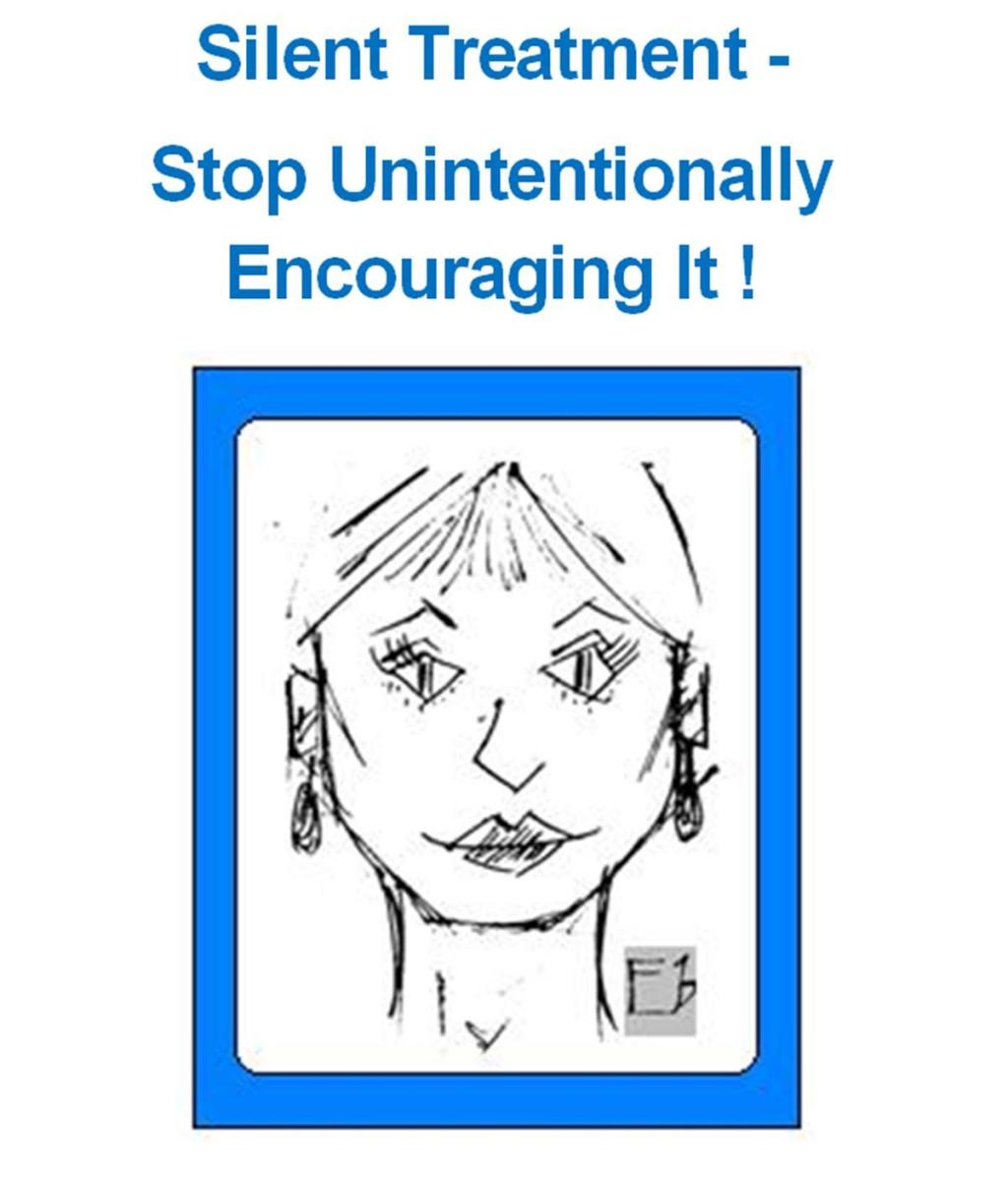When Recurring Silent Treatment has you Questioning the Relationship
Recurring Silences

An All Too common Silent Treatment Predicament
I had a communication from a reader who at the time of writing had been experiencing over a week of silent treatment from her partner. The silence followed an argument and such silences had become a pattern in the relationship. The reader had previously always been the one to apologise and try to make things right so that the silence could be over, trying to carry on as normal for the sake of their children.
The reader was feeling extremely down and was again questioning if she and her partner were even compatible and if the marriage could survive. She was contemplating taking off for a night or two to think things through. She struggled to get through a day without breaking down in tears but felt numb and anxious, for herself and for her children, at the thought of leaving the relationship. At the same time, she longs for freedom from silent treatment.
My Response ...
to this reader, and for others in a similar situation, follows.
Always trying to make things right
I am sorry to learn of your situation. When Silent Treatment is recurring it absolutely makes sense to question yourself and your decisions and to think about the future. If the silent partner is basically a good person in most other respects this makes knowing what to do all the more difficult. Then on top of all that, as you rightly state, you have your children’s happiness and welfare to consider. It makes for a very confusing and depressing state of affairs.
You have identified that always saying sorry and being the first to try to make things right does little to stop the silences recurring and it sounds like you have resolved to stop doing this. I am of the opinion that this is a good start, but I am wondering what, if anything, you have replaced this with.
Just because ...
... your partner may want you to feel guilty, unworthy, a nuisance, upset, angry or apologetic doesn't mean you have to feel that way.
Don't Simply wait for your Partner to Change
I think if a person replaces always being the first to try and make up with simply waiting for their partner to take the initiative, say sorry and make the first move to resolve things they may well wait an extremely long time! Indeed, for some this can mean what would have been a 10 day silence turns into a month long silence. To some extent it can make a person feel a sense of satisfaction for not being the one to always “give in”, but on the other hand, of itself, it might not make them feel that much better.
Hence I would urge you to seriously consider trying the strategies in these articles alongside not always being the first to give in. The strategies involve learning how to take back control of your own emotional state, rather than staying in emotional limbo until your partner deigns to start speaking to you again, and they can have you feeling heaps better whether or not your partner chooses to speak to.
When a partner uses silence as a way of coping with discord or as a control mechanism it's very difficult to fathom what on earth is going on in their mind. The publication "Why does he do that" (pictured) offers much food for thought in this regard.
Wondering What's Going on in his Mind !

What you Need to know about Coping with Silent Treatment
Change yourself!
It’s important to realise that as adults we have to take responsibility for our own emotional state despite how others may want us to feel. With recurring Silent Treatment in the picture it’s central to choose to uplift yourself and change your own attitude to being given the Silent Treatment because you are the only person you can actually change, and sustained Positive Thinking can make a world of difference.
Once a person is able to consistently apply the strategies, then they are in a good position to discuss, agree and establish cooling off periods with their partner, as opposed to letting things escalate into ST.
Thought Awareness is important

Choosing not to Despair
The book below (Get out of Control) may be of interest in regard to leaving a relationship with a passive aggressive person, but only you can decide if you need to take a break to think things through and/or ultimately split up. Again/in the meantime I think it will help if you empower and uplift yourself as suggested in the articles. In this way, whether you choose to stay or leave, you know you can take control of your own emotional well being. In turn your children will benefit from seeing you uplift yourself because often they sense when things are not right, know when a parent is trying to cover something up and, most importantly. they can often detect and feel anxious if a parent is in despair.
Instead of purely despairing, putting effort and determination into carrying out the strategies along with more positive thinking can help a person through their current bout of silence, help save them from living in dread of the next bout and help them feel more confident about the future, whether or not they stay in or leave the relationship.
As to the tears, sometimes we have to let them just flow just to have an outlet rather than keep everything in. But feeling like bursting into tears at work, in the supermarket, or at the school gates is not the best feeling so if this happens to you, then doggedly repeating a mantra like “I can cope without crying” over and over and over can help you through such moments, and beyond (either shortening the time spent crying or preventing the tears from falling in the first place).
Choose to Help Yourself Feel Better
Please see the video above, and read/re-read the article in the link below and carefully process how you wish to proceed. If you do decide to try the strategies, things won't change overnight but you most certainly can help yourself feel better and better.
I hope you find your way forward and thank you for your communication. You might also relate to some of my articles on passive aggressive partners.
Regards, Ebonny
See the Link below for the "Must See" Article detailing How to Cope with Silent Treatment
- The Silent Treatment Emotional Abuse in Relationships/Marriage: How to Cope
Here's what you can do to cope and feel better when your partner gives you the silent treatment, rather than be miserable, angry, or isolated.
Another useful link
© 2015 Ebonny








